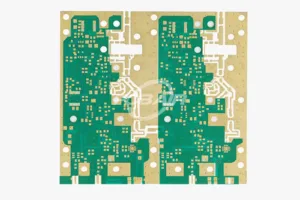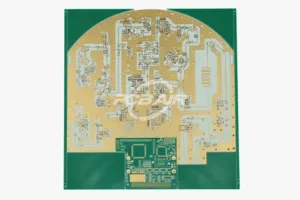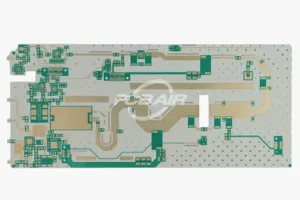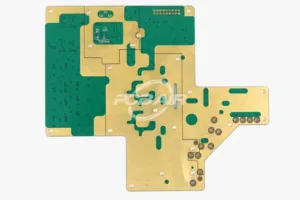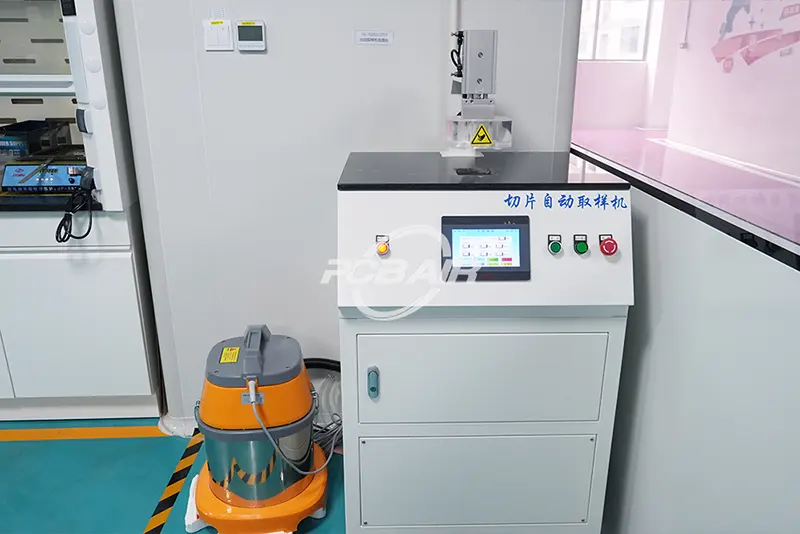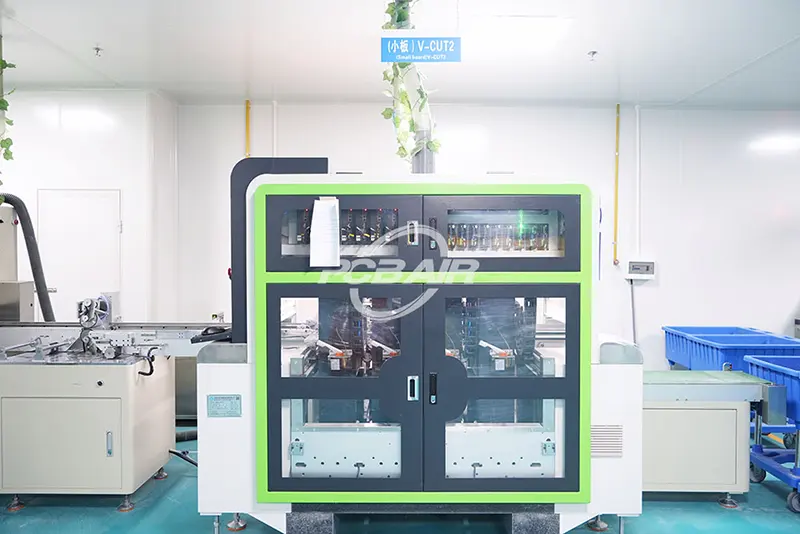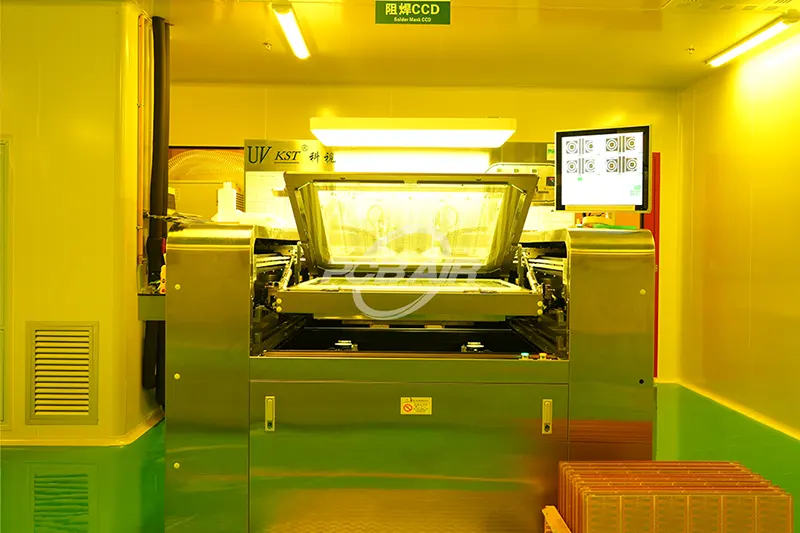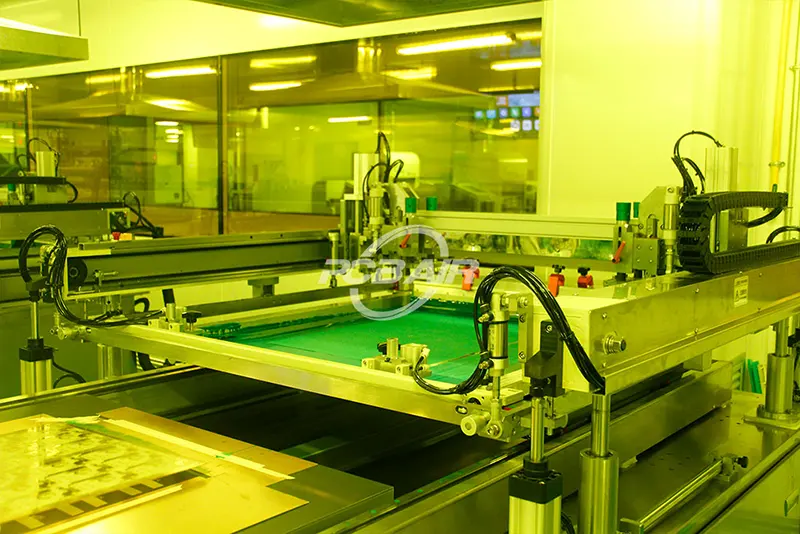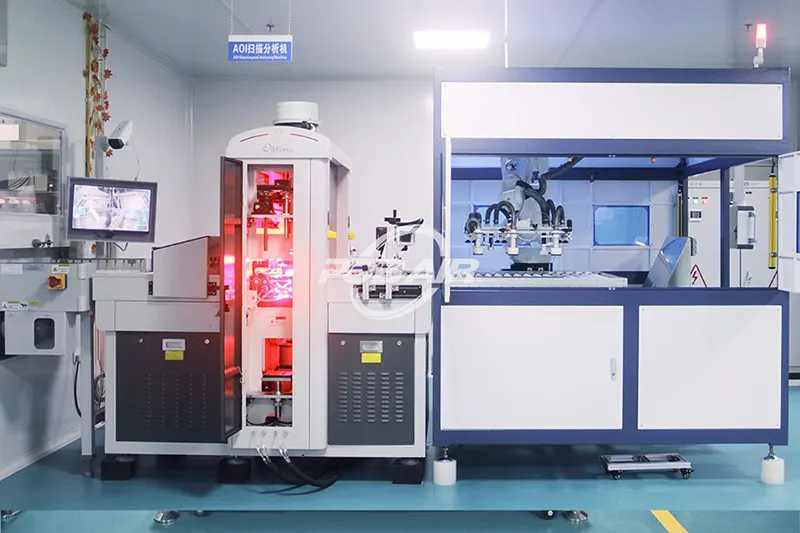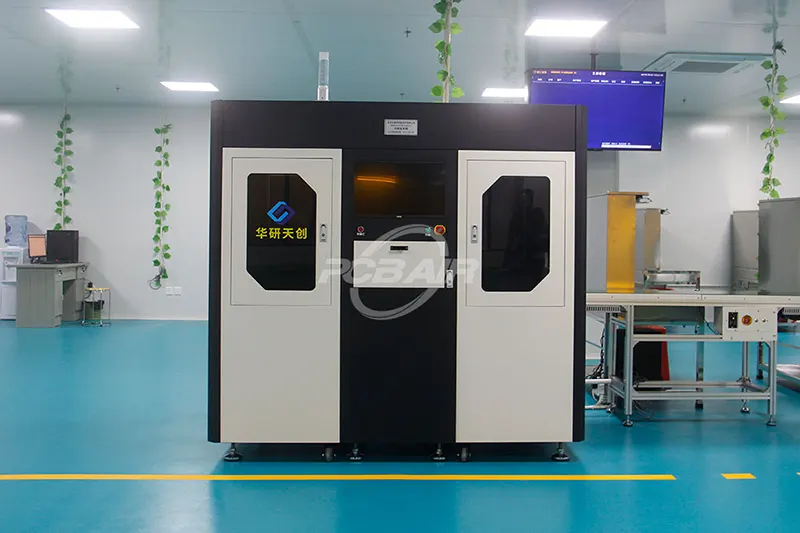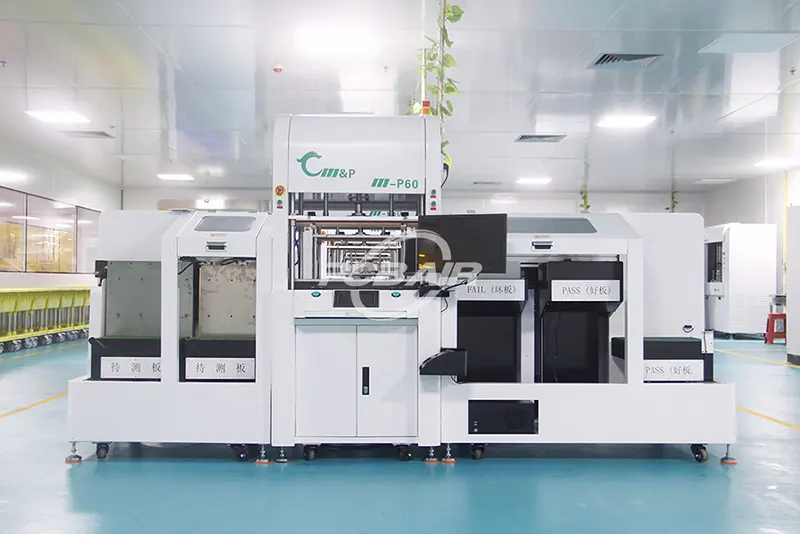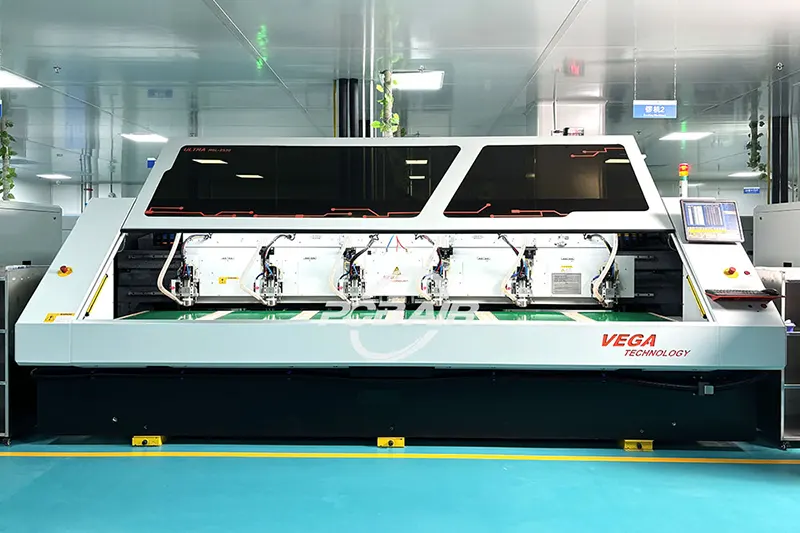8:00 - 17:30
Monday to Saturday
Monday to Saturday
Low Moisture
Even minimal moisture can affect electrical performance. PTFE materials have a low moisture absorption rate of 2%, much lower than traditional FR-4 materials.
Impedance
Materials with a Dk tolerance of ±2% ensure accurate impedance control, essential for maintaining signal integrity in high-speed and RF circuits.
Thermal Control
High-frequency PCBs generate substantial heat. Polyimide materials provide strong thermal properties, allowing use in harsh environments.
Strong Signals
PTFE and ceramic materials have low dissipation factors, reducing signal loss and ensuring efficient high-frequency signal transmission.
Introduction to High-Frequency PCB
High-frequency PCBs, also known as HF PCBs, are important for transmitting electromagnetic waves at GHz frequencies with minimal loss. Typically, these PCBs operate within a frequency range of 500 MHz to 2 GHz. They feature a low dielectric constant (Dk), low dissipation factor (Df), and minimal thermal expansion, making them well-suited for HDI technology. Our high-frequency PCBs are used in multiple industries, including high-speed communication systems, telecommunications, and RF microwave applications.
As a high-frequency PCB manufacturer, PCBAIR produces both rigid and flexible boards that enable faster signal transmission for frequencies up to 100 GHz. We select materials with low Dk, Df, and low coefficients of thermal expansion, such as PTFE or ceramic high-frequency substrates. This ensures minimal signal loss at high frequencies. You will find our prices highly competitive and our customer service outstanding.
High-Frequency PCB Manufacturing at PCBAIR
High-frequency PCBs are similar in design to multilayer PCBs but require materials with good dielectric properties. These materials include Rogers, FR4, Teflon, ceramic, and polyimide, with silicon dioxide used as a filler. The choice of materials depends on the specific application. For instance, when operating at frequencies above 10 GHz, Teflon is often the preferred material.
All high-frequency PCBs from PCBAIR include a ground plane, which is important for high-speed applications. This feature helps reduce electromagnetic emissions and maintain signal quality. We provide controlled impedance traces to ensure they align well with both the power source and the load.
Skin effect and crosstalk are common challenges in high-speed PCBs. Crosstalk occurs when components couple with each other, causing interference. To prevent this, we reduce the distance between the plane and the trace layer. Skin effect, which arises due to increased resistance, can lead to higher temperatures. Our approach involves optimizing the trace length and width to manage heat effectively.
Our engineers at PCBAIR adjust trace width based on different copper thicknesses and measure the etched copper thickness to keep it within a tolerance range of ±0.02 mm, or even ±0.015 mm for higher precision. After creating the film, we thoroughly inspect it to ensure no defects like pinholes or gaps are present. Even minor flaws can affect transmission, and we eliminate these to maintain quality.
For chemical copper sinking, we use the plasma method—the most challenging step in high-frequency PCB manufacturing. Each hole must be fully plated with copper, leaving no gaps. We inject gases such as carbon tetrafluoride (CF₄), argon, nitrogen, and oxygen between high-pressure electrodes under vacuum, with the PCB placed between them. This creates plasma that removes drilling debris and ensures clean holes.
We also maintain strict control over the solder mask thickness, as even slight variations can result in disqualification. During the final manufacturing stage, a destructive test is performed using thermal shock at 288°C for 10 seconds, repeated up to three times, to confirm the hole walls remain intact.
Why Choose Us as Your High-Frequency PCB Manufacturing Partner?
PCBAIR manufactures high-frequency PCBs with low impedance tolerance and optimized RF performance. We use Rogers or PTFE materials, such as DuPont’s Teflon, for impedance-controlled circuit boards, manufacturing sandwich buildups with material combinations tailored to your specifications. As a high-frequency PCB manufacturer, we guide you in selecting the right materials, provide technical advice, and ensure quick turnaround times with suitable laminates for your project.
Competitive Pricing
With over 10 years in the PCB industry, PCBAIR has established a reliable supply chain that ensures access to premium components at competitive prices. For complex projects needing special materials or advanced technical specifications, our strong manufacturing capabilities enable us to provide cost-effective solutions while maintaining high quality.
Fast and Reliable Delivery
We ensure rapid production times, with samples shipped within 24-48 hours and mass production orders delivered within 72-120 hours. Our partnerships with global logistics providers like UPS, EMS, FedEx, DHL, and TNT guarantee prompt and reliable shipping, supported by our digitalized factory management and 90% automation for enhanced efficiency.
Quality Assurance
Our rigorous quality inspection begins with incoming material checks. We use AOI to detect defects and X-ray to identify internal issues. Electrical performance testing is performed with advanced automatic test machines and flying probe testers. Before shipment, our dedicated QC team conducts a thorough manual visual inspection to ensure all products meet strict quality standards.
Customer Service
Our experienced sales, order management, and engineering teams provide expert support throughout your project. The sales team handles support and project follow-ups, while the order management team ensures timely quotations and monitors production status. Our engineering team reviews your design files, offering professional advice to optimize production efficiency.
PCB Laminate Materials Suppliers
To ensure your PCBs are reliable and perform well, we use high-quality laminate materials. We have built strong partnerships with top suppliers in the industry, including trusted brands like Rogers, Panasonic, Dupont, Arlon, Taconic, Nelco, Isola, Teflon, and more. This means you receive the best materials tailored to your project needs, providing the performance and durability you expect.

High-Frequency PCB Capabilities
By reviewing the following high-frequency PCB capabilities table, you can briefly understand what we can do.
| Specification | Capabilities |
|---|---|
| Base Material | Rogers / Taconic / SYL / Wangling CZZYST / FSD / AGC / Arlon |
| Mixed Stackup | FR-4 + High frequency |
| Layer | 36L |
| Board Thickness | 0.2-8mm |
| Thickness Tolerance | ≤1.0mm: ±0.10mm, >1.0mm: ±10% |
| Finished Copper | 0.5OZ-20OZ |
| Minimum Trace Width/Space | Inner (finish copper): 18um (1/2OZ): 2.5/2.5mil 35um (1OZ): 3/3mil 70um (2OZ): 4/5mil 105um (3OZ): 6.5/6.5mil Outer (finish copper): 25um: 2.5/2.5mil 35um (1OZ): 4/4mil 70um (2OZ): 6/6mil 105um (3OZ): 10/10mil |
| Minimum BGA Pad | 8mil |
| Finished Surface | LF HASL, plating NI/AU, plating hard Gold, ENIG, Immersion Tin, Immersion silver, OSP, ENIG+OSP, HASL+plating hard Gold, ENIG+plating hard Gold, plating gold+plating hard Gold, ENEPIG, OSP+plating hard Gold |
| Microwave Bands & Max Signal Rate | 0-128Ghz/128Gbs |
| Hole size for Machine Drill | 0.2-6.4mm |
| Shape Tolerance | ±0.10mm |
| Minimum Laser Drill | 0.075mm |
Need Help With Your Project?
Please send us a message, and our high-frequency PCB manufacturing capabilities can help you complete your next project.
High-Frequency PCB Samples We Manufacture for Our Customers
We have obtained a variety of certifications and registrations, including ISO 9001, automotive and medical certifications, as well as SGS and UL certifications, and we maintain rigorous quality control through IQC, IPQC, and OQA. We deliver high-quality high-frequency PCBs on schedule and within budget with outstanding precision.
High-Frequency PCB Manufacturing Equipment
Our 65,000 sqft campus in Shenzhen, China contains the advanced equipment required for the manufacture and assembly of your PCBs. For high-frequency applications, we use CNC and laser drilling machines, laser direct imaging, chemical etching, and vacuum lamination presses for multilayer bonding.
With cutting-edge plating equipment, we ensure uniform copper deposition and apply solder mask surface treatments. Mechanical processing utilizes CNC routers. Rigorous testing with AOI, electrical testers, TDRs, and VNAs measures impedance, insertion loss, and return loss to guarantee quality.

